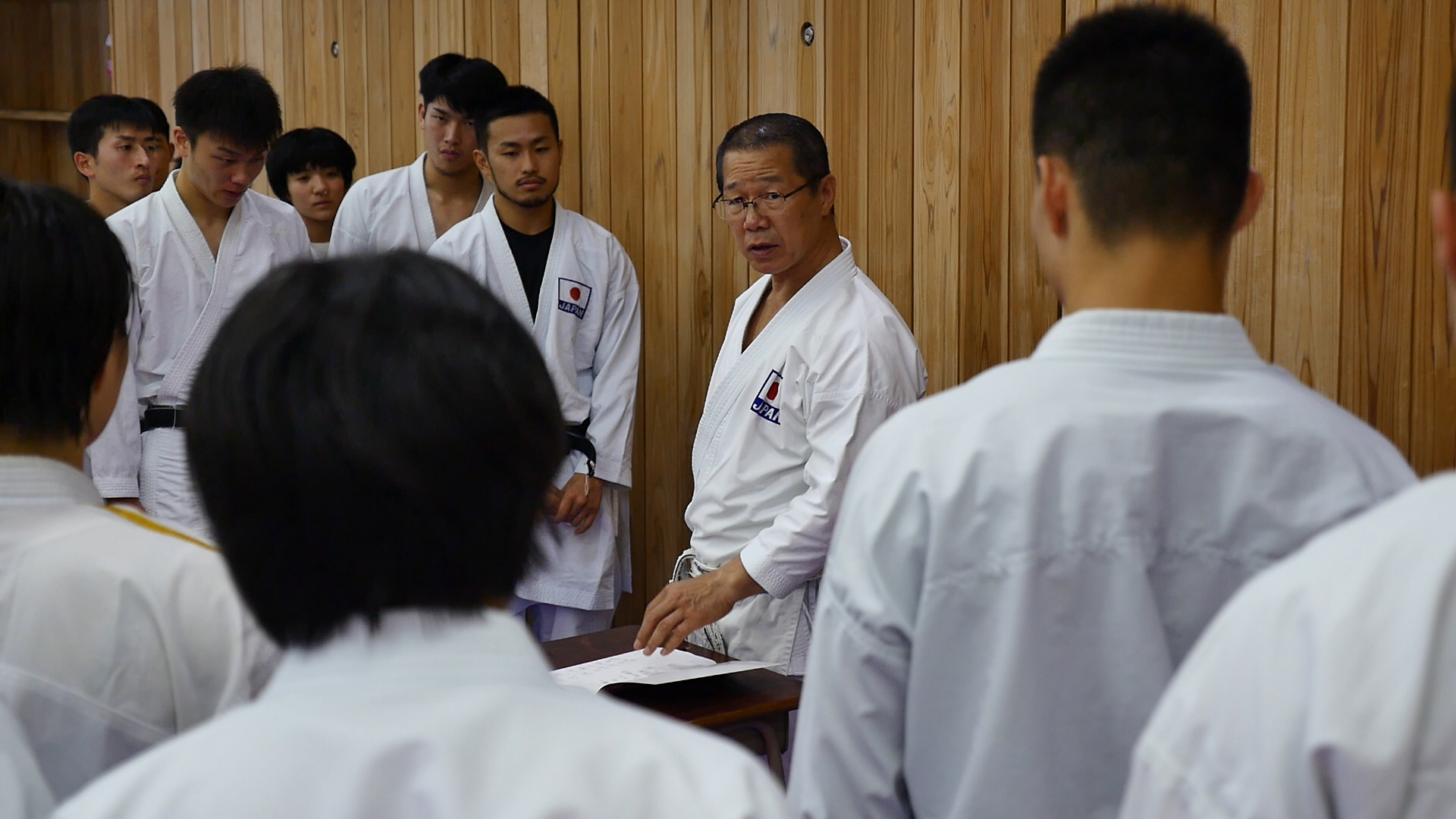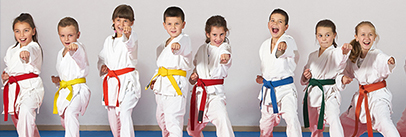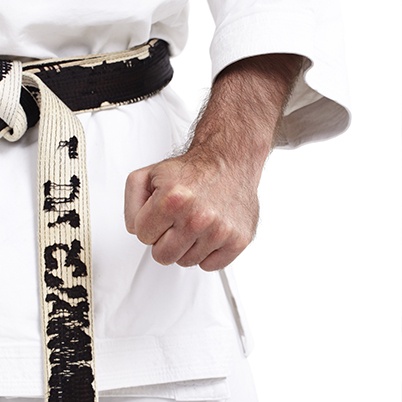Passing through France this fall to provide training with the JKS and the FFK, Kagawa shihan, 9th Dan and leader of the JKS, tells us about his vision of Karate and the future he envisions for the latter. . As on the tatami mats when he was at his competitive peak, Masao Kagawa is direct, hard and hits hard.
By Florian Fournier / Photos : D.R
Traduction : Hannah Johnston
Born in Osaka, Masao Kagawa began Karate at the age of 17, in the footsteps of his elder brother. Accompanying him to Tokyo at the JKA championship, the one who practiced baseball fell in love with the way of the empty hand. He asked his brother to teach him this martial art which still sticks to his skin today.
Student of Asai sensei, Masao Kagawa followed him when he was kicked out from the JKA and created the JKS. When Asai died, he succeeded him at the head of the JKS and has been developing this shotokan school since. At the same time, Kagawa trains the best current sensei and competitors at the Teikyo University (Miyo Miyahara, Koji Arimoto, the Moto brothers...).
Had you though one day that you would become an expert ?
Never. My only goal was to become a strong fighter. When I started, I was just thinking about becoming strong and technical. Everything happened naturally afterwards.
« MY ONLY GOAL WAS TO BECOME A STRONG FIGHTER »
What is your best memory of Karate?
Very often, it is the first times that stick in our minds. My greatest memory remains the day I became JKA champion for the first time in Kumite and Kata. I started Karate at 17 and it was only at 30 that I experienced this great success.
The important thing in Karate is to persevere. By training with conviction and hardness, all comes to you. These two titles were the consecration of a passion and hard work that I continue to do today.
You have experienced everything in Karate, champion, trainer, expert. What motivates you so much ?
The heart. To learn, to pass on as much as possible to as many people as possible my technical and, above all, my philosophical knowledge. I want people to practice Karate with the heart and not just the sports side.
It is important to pass on the philosophical message and the state of mind of Karate. We must constantly remember that Karate is practiced beyond sport. Karate teaches how to become a good person, to be respectful, to persevere. This is why I keep teaching.
« "DO" MEANS PATH AND WE SHOULD NOT LEAVE IT »
How do you view current practice?
The technical practice properly develops. Although there is still a lot of work to be done, the worldwide technical consistency is good.
However, there is a point on which Karate loses its value, it is on its mentality. Let me explain. Previously, Karate was really practiced with the heart, with philosophy. Today, the sport aspect takes a too important part in the practice. We have to find the right balance.
We can notice in competition that, in loss or in win, the attitude of Karatekas is often borderline. Some should be more humble and worthy in victory.
It is the same in defeat. You must remain worthy and lose with grace and, then, get back to work. Criticizing the referee or his opponent will not make you stand out bigger from the fight.
I insist a lot on the fact that we practice Karate-do and not Karate. "Do" means path and we should not leave it.
« LET THE BODY EXPRESS ITSELF WITHOUT STRAINING IT »
Asai sensei had his own style. Is there a Kagawa style today ?
For my part, I focus my practice a lot on the movement of the hips and the use of the whole body to use the techniques. It is important to have full control of the body in movement.
I try to make all these movements natural and not strong. You have to let the body express itself without straining it, having the hips as a starting point.
Is Karate becoming more and more popular ?
Through my travels, I realize that there are more and more practitioners and, above all, they take pleasure in training.
And this is what matters. The more people like what they do, the more they will talk about it and attract others to Karate.
« IN TOKYO, THE LEVEL WAS VERY GOOD. BUT THE RULES BEING NOT ALWAYS VERY CLEAR, IT PREVENTED SOME FROM WINNING »
Is it important that Karate becomes Olympic again ?
Honestly, no ! The sport version of Karate that we saw at the Olympics is only a small part of the practice. Karate is much more than that.
To develop it, it would be more judicious to put forward the traditional side which envelopes all the practice of a martial art.
It is important to demonstrate all the technique, all the fundamentals of Karate rather than a small part which often distorts Karate-do. The system should be redesigned to be more beneficial.
What did you think of the Tokyo Olympics ?
The level was very good. However, with the rules not always very clear, it prevented some from winning. Those with better technique and greater will did not necessarily won gold. It also distorted our discipline for the public. I am thinking in particular of the final between Tareg Hamedi and Sajad Ganjzadeh.






